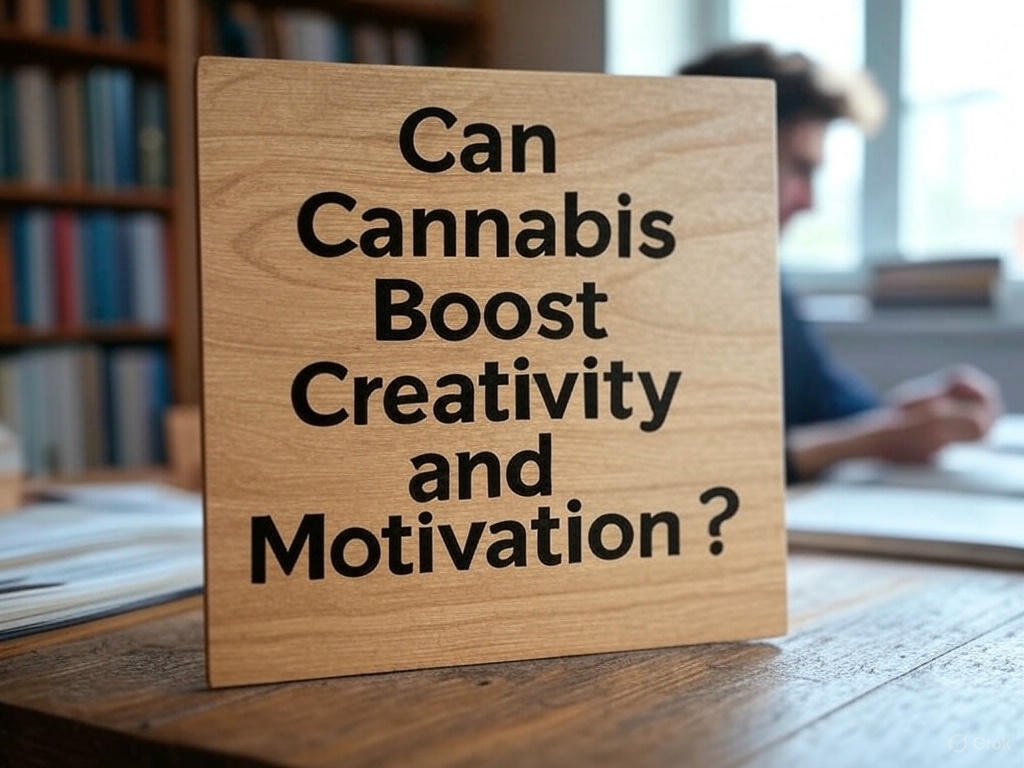The image of the cannabis-inspired genius has been woven into the fabric of art and culture for decades. From musicians riffing late into the night to painters chasing visions on canvas, cannabis has long been seen as a muse. But behind the haze of cultural myth, an essential question remains: can cannabis truly enhance creativity and motivation, or is this just another well-marketed illusion?
The Roots of the Myth
Cannabis has been part of human civilization for thousands of years, with traces found in ancient Chinese and Indian texts that point to its use for both ritualistic and medicinal purposes. In the 20th century, cannabis became closely tied to countercultural movements, particularly in music and art. Jazz legends like Louis Armstrong and rock icons like The Beatles openly acknowledged cannabis as part of their creative process. By the 1960s and ‘70s, cannabis had cemented its reputation as a symbol of artistic rebellion and unshackled inspiration.
Pop culture only amplified the image. Films, music, and books perpetuated the idea that cannabis opens the mind, unlocks hidden potential, and dissolves the boundaries of conventional thinking. But anecdote is not evidence – and as legalization spreads and research expands, scientists have been eager to put this claim to the test.
What Science Says
The relationship between cannabis and creativity is complex. Studies suggest that cannabis can indeed influence certain cognitive processes, but not always in the ways enthusiasts might expect.
A 2014 study published in Psychopharmacology found that low doses of THC (the psychoactive compound in cannabis) slightly enhanced divergent thinking, a type of thinking linked to idea generation and creativity. However, higher doses often had the opposite effect, impairing both divergent and convergent thinking.
Cannabis also stimulates dopamine release in the brain’s reward centers, producing feelings of pleasure and novelty. This can heighten the perception of creativity, though it doesn’t necessarily make ideas more original or useful. As Dr. Alice Flaherty, a neurologist at Massachusetts General Hospital, notes, “The increased production of ideas may be accompanied by a decrease in their quality”.
When it comes to motivation, the evidence is more cautionary. While cannabis can reduce anxiety and help some users engage with tasks they find stressful or overwhelming, chronic or heavy use is associated with amotivation, a well-documented phenomenon marked by reduced goal-directed behavior.
Real-World Perspectives
Studies aside, real-world accounts show a nuanced picture. Many artists and entrepreneurs report that cannabis helps them access novel ideas, break through creative blocks, or view projects from new angles. A 2017 survey in Consciousness and Cognition found that 50% of cannabis users believed it enhanced their creativity.
But just as many caution that its benefits depend on moderation and purpose. Several prominent creatives have openly walked away from cannabis, citing its tendency to erode discipline over time. The line between “creative boost” and “unproductive drift” can be razor-thin.
The Fine Line: When Cannabis Helps – and When It Hurts
Whether cannabis supports creativity and motivation depends on multiple factors:
- Dosage: Microdosing – consuming very small amounts – may spark insight without impairing focus, while higher doses can lead to distraction or lethargy.
- Strain: The type of cannabis strain plays a crucial role in shaping the user’s experience. Sativa-dominant strains are widely regarded for their uplifting and energizing effects, often described as promoting mental stimulation, focus, and euphoria. Many users turn to sativas when seeking inspiration, brainstorming ideas, or engaging in artistic work, as these strains are believed to enhance divergent thinking – the ability to generate multiple solutions or novel concepts.
Indica-dominant strains, on the other hand, are typically associated with full-body relaxation, stress relief, and sedation. While indicas can help with unwinding or managing anxiety, they may also lead to lethargy and diminished motivation, making them less suited for tasks that require sustained focus or creative engagement.
It’s worth noting, however, that recent research suggests the chemical makeup of cannabis – particularly the balance of cannabinoids like THC and CBD and the presence of specific terpenes – plays a more decisive role in determining effects than the sativa or indica label alone. For example, terpenes like limonene and pinene are often linked to mood elevation and cognitive sharpness, regardless of strain classification.
For those looking to explore cannabis for creativity or motivation, experimenting with different strains while paying attention to cannabinoid and terpene profiles can help identify what works best for their individual needs. Reputable sources like Herbies Seeds offer a wide selection of carefully curated strains, complete with detailed information on THC/CBD content, terpene profiles, and expected effects – making it easier for consumers to make informed choices tailored to their creative or productivity goals.
CBD and Motivation
While THC often takes the spotlight, cannabidiol (CBD) – a non-intoxicating compound – has emerged as a focus-enhancing alternative. Research indicates that CBD may reduce anxiety and improve sleep, indirectly supporting productivity and mental clarity. However, the evidence on CBD as a direct cognitive enhancer remains limited, and its effects are largely mediated by its calming influence rather than stimulation.
Tips for Mindful Use
For those curious about using cannabis to support creativity or motivation, intentionality is key. Experts recommend:
- Start with low doses to gauge individual response
- Choose strains thoughtfully, paying attention to THC/CBD ratios
- Use cannabis in environments conducive to focus and inspiration
- Avoid relying on cannabis as the sole driver of motivation or creativity
Moving Toward a Balanced Understanding
Cannabis occupies a fascinating, sometimes paradoxical space in the world of creativity and motivation. While some individuals report clear benefits, scientific evidence underscores that these effects are highly variable and dose-dependent. Used mindfully, cannabis may indeed loosen the reins of rigid thinking and offer fresh perspectives – but it is no guaranteed shortcut to genius or productivity.
As legalization expands and research deepens, cannabis will likely continue to challenge assumptions not only about creativity but also about human potential itself. For now, the most responsible approach is one of curiosity paired with caution: recognizing that while cannabis may open certain doors, it is up to the individual to walk through them with purpose.






